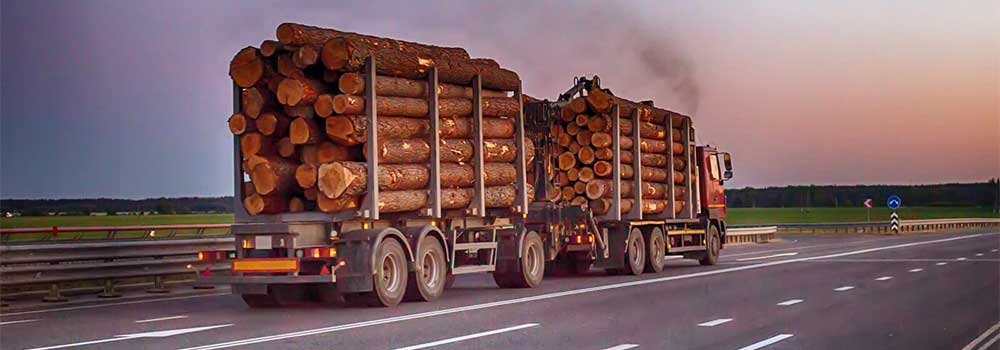To thrive in today’s trucking sector, both drivers and trucking firms need to be always on the lookout and prepared for any eventuality. Preventing driver tiredness, properly loading and securing goods, adhering to safety rules, and providing enough training are all essential.
Trucking firms may improve safety, increase earnings, and keep their good name by adopting these practices. In this article, we’ll go through some of the most typical blunders and traps truck drivers face, as well as some advice for avoiding them. So, check them out before you look for the temporary trip permits.
Driver Fatigue

Trucking companies face a serious threat from drivers who are too tired to operate safely. Due to fatigue brought on by long hours on the road, tight deadlines, and lack of sleep, drivers may become unable to respond swiftly to unforeseen events. Loss of focus is another dangerous consequence of fatigue while operating a vehicle of this size.
Trucking businesses have a responsibility to their customers to ensure that their drivers get the breaks and rest they need to prevent driver fatigue. Rest breaks are required by law, and the Federal Motor Carrier Safety Administration (FMCSA) sets tight limits on how long a driver may stay on the road. Drivers are urged to make use of these regulations and recognize their individual capabilities.
Overloading and Unsecured Cargo

Frequent causes of truck accidents include overloading and improperly secured goods. Overloading a vehicle causes unnecessary wear and tear on its suspension, wheels, and braking system. The truck may skid out of control, which increases the risk of collisions and personal injury.
Unstable loads may also move during transit, leading to a tipping truck. The risk of falling from a considerable height increases while driving on roads or overpasses.
Trucking firms may reduce these dangers by following safety protocols while loading and securing goods and by avoiding overloading their trucks. This involves the use of suitable load-securing gear, such as straps, chains, or tie-downs. Additionally, truckers should do routine inspections of their goods throughout shipment to guarantee their safety.
Ignoring Safety Regulations
One of the worst things that can happen to a trucking firm is for them to disregard safety laws. The purpose of safety laws and standards is to reduce the likelihood of accidents and related injuries for motorists, passengers, and other road users. Legal action, monetary penalties, and tarnished brand image are all possible outcomes of a company’s failure to adhere to these rules.
It is crucial for trucking businesses to be aware of the latest rules and to provide their staff with the resources they need to adhere to them. Defensive driving, load securing, and compliance with hours of service laws are just some subjects covered in such training. To prove compliance with safety laws, businesses should maintain thorough records of maintenance, inspections, and driver actions.
Poor Route Planning
The efficiency of trucking operations may be negatively impacted by poorly planned routes. Delays, missed deadlines, and extra expenses may all arise from inadequate route planning. Delivery times may be affected by a number of variables, including traffic, weather, and road construction, thus it is essential for trucking businesses to carefully plan routes.
Trucking businesses may use route optimization software to design their routes with these considerations in mind. The program calculates the best potential routes, taking into consideration distance, traffic, and weather.
Lack of Communication
Successful trucking operations rely heavily on clear and consistent communication. To avoid confusion, delays, and mistakes, it is essential that drivers, dispatchers, and other staff members be able to communicate effectively and immediately.
Errors and delays may be reduced if drivers and dispatchers are in constant contact with one another. Drivers with the temporary trip permits should notify dispatchers of their progress often, and dispatchers should be accessible to address any issues that may emerge.
Inadequate Insurance Coverage
In the event of an accident or other occurrence, trucking businesses must carry insurance to safeguard their assets and personnel. Inadequate insurance coverage might lead to bankruptcy and legal trouble.
Trucking firms should look at liability insurance, cargo insurance, and workers’ compensation insurance, to name a few. If an employee or one of their trucks causes damage or injury, the trucking company’s liability insurance will pay for it.
Insurance policies for trucking firms should be reviewed and updated on a regular basis to ensure that their business is sufficiently covered.
Conclusion
The trucking business is cutthroat, so it’s crucial to steer clear of typical hazards. Important factors in achieving this goal include performing routine maintenance and inspections, avoiding driver tiredness, loading, and securing goods correctly, adhering to safety standards, planning, and communicating an efficient route, and carrying sufficient insurance. Trucking firms may improve safety, increase earnings, and keep their good name by adopting these practices.
